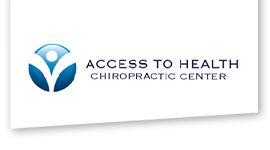What Is A Pinched Nerve?
What Is A Pinched Nerve in Norwich CT?

Imagine yourself hunched over your desk when a familiar twinge touches the back of your neck–a pinched nerve. For a second, let’s live in the moment when you writhe in pain.
Are you familiar with the feeling? Are you shuddering at the thought?
Or, have you ever wondered precisely what is a pinched nerve? Because if you didn’t know, a pinched nerve in Norwich CT could be an excruciating experience. This article discusses a pinched nerve, some of the symptoms, and how you can treat it.
What is a pinched nerve?
When a nerve is compressed or squeezed by surrounding tissues, it’s called a pinched nerve. It can happen anywhere in the body, but the most common places are in the back, neck, and shoulders.
What causes a pinched nerve?
Pinched nerves can be caused by many things, including a herniated disk, bone spurs, carpal tunnel syndrome, or even poor posture. They can happen due to an injury, repetitive motion, or simply from aging.
Compression of the nerve causes pinched nerves. They can happen when too much pressure is on the nerve or when the surrounding tissues are inflamed.
How is a pinched nerve in Norwich CT diagnosed?
A healthcare provider will diagnose you with a pinched nerve through a physical examination and your medical history. They will ask you about your symptoms and examine the affected area. The healthcare provider will also order imaging tests, such as an MRI, to confirm the diagnosis.
Common signs of a pinched nerve.
A pinched nerve’s most common symptom is pain, which can be very painful. So much, they can make it difficult to move the affected body part. The pain can range from a sharp, burning sensation to a mild ache.
Other symptoms include tingling, numbness, and weakness in the affected area. The pinched nerve symptoms vary depending on the location and severity of the pinch.
Common pinched nerve signs and symptoms also include:
- Pain: This is the most common symptom of a pinched nerve. The pain may be localized to the area of nerve compression, or it may radiate down the arm or leg.
- Numbness and tingling in your fingers or toes: These symptoms are the compression of the nerves supplying sensation to the area.
- Weakness: Compression of the nerves supplying muscles can cause weakness in the affected muscles.
- Difficulty moving your arms or legs: This may be due to the above symptoms.
If you think you may have a pinched nerve, it is crucial to seek medical attention as soon as you can. Treatment will vary depending on the underlying cause but may include medication, physical therapy, or surgery.
How is a pinched nerve treated?
There are several different ways to treat a pinched nerve. Treating a pinched nerve varies depending on the underlying cause. In many cases, it focuses on relieving the pinched nerve symptoms.
Some people find relief with over-the-counter pain medications such as ibuprofen or acetaminophen. Others may need to use strong prescription medications, such as steroids.
Other possible treatments to relieve pressure on a pinched nerve include:
- Physical therapy: A physical therapist can teach you stretches and exercises to help ease the pressure on the affected nerve and improve your range of motion.
- Surgery: Certain surgeries may be necessary to relieve stress on the nerve if other treatments do not work.
- Injections: In some cases, your doctor may recommend injecting a steroid or other medication into the area around the affected nerve to help reduce inflammation and ease the pain.
- Acupuncture: Acupuncture is a form of traditional Chinese medicine that involves the insertion of thin needles into specific points on the body. Some people find acupuncture helpful in relieving pain related to pinched nerves.
- Chiropractic care: Chiropractic care is an alternative medicine involving spinal manipulation to relieve pain. Chiropractic care can also help ease the pain associated with pinched nerves.
How can a chiropractor help with a pinched nerve?
A chiropractor is a health care professional who specializes in the diagnosis and treatment of musculoskeletal disorders. Chiropractors are the experts in treating the musculoskeletal system, which is responsible for movement and stability in the body. When there is an issue with the musculoskeletal system, it can cause pain and dysfunction throughout the body.
Chiropractors use several techniques to treat pinched nerves, including spinal manipulation, massage, and physical therapy. Some chiropractors may also recommend lifestyle changes, such as improving your posture or losing weight to help treat a pinched nerve.
A pinched nerve can be a painful and debilitating condition. Many treatment options are available, though. And they can help soothe the symptoms and provide relief.
If you think you may have a pinched nerve, it is crucial to see a doctor, chiropractor, or another healthcare provider for an accurate diagnosis. They will be able to recommend the best treatment options for your specific case.
So, if you think you may have a pinched nerve, set up an appointment with Access To Health Chiropractic Center today.
Monday
9:00am - 5:45pm
Tuesday
9:00am - 6:00pm
Wednesday
9:00am - 5:45pm
Thursday
9:00am - 6:00pm
Friday
9:00am - 12:30pm
Saturday & Sunday
Closed
Access To Health Chiropractic Center
68 Salem Turnpike
Norwich, CT 06360
P: (860) 889-1475
F: (860) 889-2850



